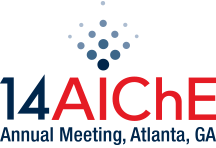

Novel sorbent development remains an active area of research in a variety of industries. In respiratory and collective protection, efforts mainly focus on new materials for enhanced and broadened protection against toxic chemicals. Traditionally, activated, impregnated carbons have been used to provide efficient protection against chemical warfare agents and many toxic industrial chemicals. However, these materials are typically over-designed for persistent chemical agents, while high volatility, reactive gases are removed less efficiently.
In this talk, we discuss the paradigm-shifting development of a reactive substrate targeting acidic/acid-forming gases. We explore the development of zirconium hydroxide, a substrate with surface hydroxyl groups that provide efficient removal of chemicals such as hydrogen chloride and sulfur dioxide, among others. Additives such as cobalt enhance reactivity towards nitrogen dioxide. Together, not only are highly efficient respiratory and collective protection filters possible, potentially reducing the filter volume, but new components can be developed. One such component is a composite fabric/zirconium hydroxide pre-filter that can remove ambient contaminants such as NOx and SOx, reducing quantities approaching the filter and therefore prolonging filter life.
In addition to toxic industrial chemicals and ambient contaminants, zirconium hydroxide also possesses extraordinary reactivity towards persistent chemical warfare agents such as V and G agents. New techniques are under development for on-demand decontamination of these agents. The multi-faceted nature of zirconium hydroxide results in a material with ever-changing capabilities allowing for enhanced protection.
